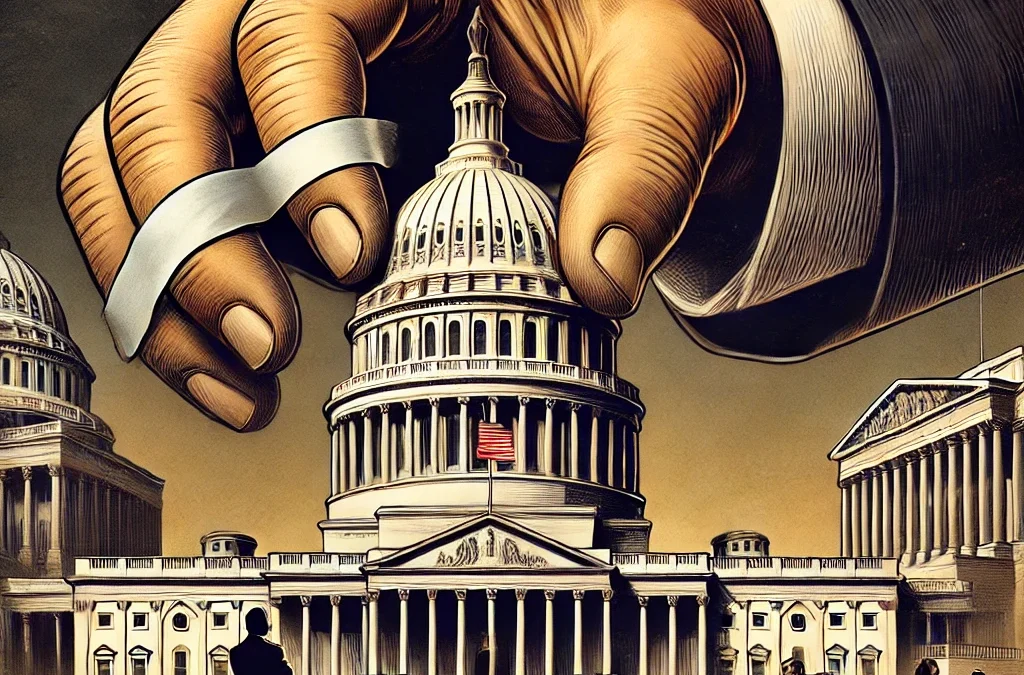Recent changes to U.S. human rights reporting have created unexpected consequences for Canada’s immigration system, particularly regarding the Safe Third Country Agreement between the two nations. This bilateral pact, along with shifting political priorities in Washington, now threatens to destabilize long-standing refugee protections.
The State Department’s Shift: A Narrowed Lens on Human Rights
The U.S. State Department’s annual human rights reports have long served as a global benchmark for accountability, guiding Congress on foreign aid decisions and spotlighting abuses worldwide. Under Secretary of State Marco Rubio, however, these reports are undergoing a controversial transformation. Internal directives now mandate the removal of references to over 20 critical human rights issues, including rights to peaceful assembly, fair trials, and protections for marginalized groups like LGBTQ+ individuals. For instance, sections on prison conditions in El Salvador and Hungary—countries with documented systemic abuses—have been excised, signaling a departure from comprehensive oversight.
This shift aligns with the Trump administration’s broader skepticism of multilateral human rights frameworks. By omitting violations such as gender-based violence and discrimination against minorities, the reports risk legitimizing authoritarian regimes and undermining U.S. credibility as a human rights advocate. As Amnesty International’s Paul O’Brien notes, these edits could signal a “roadmap” for other nations to evade scrutiny, eroding global norms.
Implications for Democracies: A Weakened Accountability Tool
The reports’ diminished scope has profound consequences:
– Loss of Leverage: Congress relies on these documents to condition aid and sanctions. Without detailed accounts of abuses, lawmakers lack the data to hold regimes accountable.
– Normalizing Authoritarianism: By downplaying issues like electoral fairness (a growing concern in the U.S. itself), the reports may embolden leaders like Hungary’s Viktor Orbán, whom Trump has praised.
– Domestic Parallels: The omissions mirror democratic erosion in the U.S., where executive overreach and voter suppression laws threaten institutional checks. If the U.S. no longer critiques these trends abroad, it risks normalizing them at home.
Canada’s Refugee System: Collateral Damage of U.S. Policy Shifts
Canada’s refugee process is deeply intertwined with U.S. policies through the Safe Third Country Agreement, which mandates that asylum seekers must claim refuge in the first “safe” country they enter (e.g., the U.S. or Canada). However, the agreement’s legitimacy hinges on the U.S. maintaining robust human rights protections.
Key Impacts on Canada:
- Challenges to the STCA’s Validity:
– The Safe Third Country Agreement already faces legal scrutiny in Canada, with critics arguing the U.S. is no longer “safe” due to policies like detention of asylum seekers and reduced refugee caps. The State Department’s pared-down reports could further undermine Canada’s justification for designating the U.S. as a safe third country.
– In 2023, Canada’s Supreme Court upheld the STCA but left room for future challenges on equality grounds. If U.S. reports ignore systemic issues, Canadian courts may reassess the designation.
- Surge in Irregular Crossings:
– Historically, U.S. policy changes (e.g., ending Temporary Protected Status for Haitians in 2017) have driven asylum seekers to Canada via loopholes in the STCA. If the U.S. downplays persecution risks, more migrants may view Canada as their only viable option, straining its system.
- Diplomatic Strains:
– Canada’s commitment to refugee rights clashes with U.S. policies. Expanding the STCA in 2023 to cover all border crossings aimed to curb irregular migration but drew criticism from advocates who question U.S. safety. The State Department’s opaque reporting could deepen this distrust.
- Global Repercussions: A Domino Effect on Migration and Democracy
– Refugee Rights at Risk: The U.S. retreat from documenting abuses may weaken international frameworks like the UN Refugee Convention, which both Canada and the U.S. have endorsed.
– Canada’s Balancing Act: While Canada seeks to uphold its humanitarian image, pressures from rising asylum claims and political debates over immigration targets (e.g., post-COVID-19 adjustments) could force tougher policies, mirroring U.S. restrictions.
Conclusion: A Call for Transparency and Solidarity
The State Department’s reporting changes are not merely bureaucratic—they reflect a broader ideological shift with cascading effects. For Canada, the stakes are high: maintaining the integrity of its refugee system while navigating a partner whose commitment to human rights is increasingly ambiguous. As global democracies face unprecedented challenges, transparency in reporting and adherence to international norms remain vital. The world—and vulnerable populations—are watching. if you have a question about Canadian Immigration law such as visa applications CONTACT US or consult with us HERE .
“When human rights are treated as negotiable, the very foundations of democracy tremble.” — Adapted from Amnesty International.
Sources: NPR Investigations, Canadian Parliament Research, U.S. State Department Archives, Migration Policy Institute, Brookings Institution.
For Further Reading: Explore the full STCA protocol [here]( https://www.canada.ca/en/immigration-refugees-citizenship/corporate/mandate/policies-operational-instructions-agreements/agreements/safe-third-country-agreement.html) and the 2025 Democracy Index (https://www.brookings.edu/articles/understanding-democratic-decline-in-the-united-states/).

